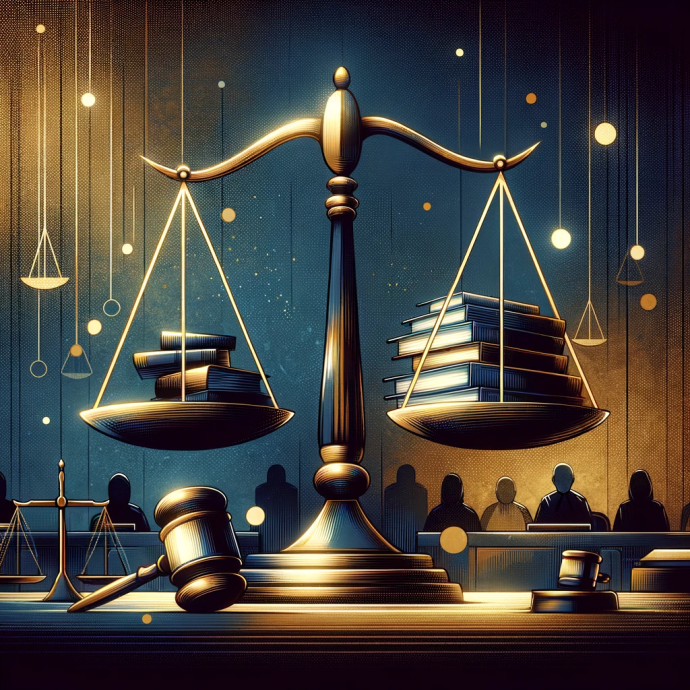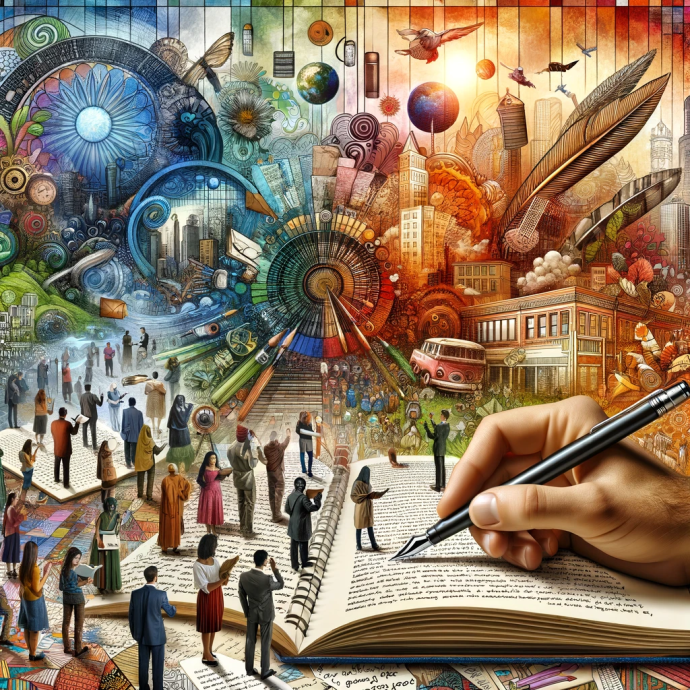AI Revolution and Copyright Law: Navigating the New Frontier of Digital Creativity and Legal Boundar

In current instances, the speedy ascent of synthetic intelligence (AI) has now not simply captivated our creativity but additionally stirred a complicated criminal debate. This burgeoning area, once the world of science fiction, now grapples with internationally demanding situations, maximum substantially the intricacies of copyright law. At the heart of this discussion lies a pivotal query: How do we stabilise the progressive strides of AI with the rights of authentic content creators?
The Dawn of a New Era
The explosion in AI generation, specifically in equipment that leverages tremendous online content material, has triggered a seismic shift in how we view and interact with virtual facts. From chatbots mimicking human communication to programs crafting visually stunning artworks, the competencies of AI are breathtaking. Yet, this awe-inspiring development has ignited a firestorm of criminal demanding situations.
A Gathering Storm of Legal Controversies
The past yr has witnessed a surge in complaints, spearheaded with the aid of authors and a prominent image business enterprise. These plaintiffs argue that their intellectual belongings were used without consent to train AI structures, which now produce content eerily paying homage to human advent. Such cases underscore the tension between technological development and the sanctity of copyright.
The New York Times Takes a Stand

In a landmark pass, The New York Times filed a lawsuit towards OpenAI and Microsoft, marking the primary foremost American information enterprise to mission using AI in this context. The lawsuit alleges that ChatGPT and Bing Chat generate content material strikingly similar to Times articles, successfully using on the newspaper's widespread journalistic funding with out authorization or reimbursement. This ambitious step has located the difficulty squarely inside the public eye, prompting good sized debate approximately the future of content material creation and possession.
The Ripple Effect Inside the AI Ecosystem
The implications of those criminal battles amplify a long way beyond the events worried. Data is the lifeblood of generative AI technology, which depends on great datasets to supply textual content, pics, and other media independently. The consequences of those lawsuits could profoundly impact the commercial enterprise models of organizations in the AI area and form the industry's destiny trajectory.
Fair Use: A Legal Quagmire
Central to this debate is the doctrine of "truthful use" in intellectual property regulation. This principle allows creators to build upon copyrighted paintings below certain conditions. However, making use of these requirements for AI equipment is uncharted territory. The courts have yet to offer clean steerage, leaving groups and creators in a kingdom of uncertainty.
The Long Road to Legal Clarity

The adventure to a definitive prison stance on AI and copyright regulation is in all likelihood to be lengthy and winding. Current complaints are within the early degrees of litigation, and it is able to take years for a Federal District Court to issue a ruling. Such choices are expected to be appealed, probably bringing the problem to the U.S. Supreme Court. This protracted legal process reflects the profound complexity and high stakes of the difficulty to hand.
Negotiations and Settlements: A Potential Path Forward
Amidst this criminal turmoil, there may be a glimmer of pragmatism. The Times has indicated its openness to resolving the dispute, probably thru a licensing settlement. Similarly, other essential players like The Associated Press and Axel Springer have already entered into information licensing agreements with OpenAI. These developments propose that negotiations and settlements may offer a more instantaneous decision, albeit one that might form the enterprise's future.
A Divided AI Landscape
The prison demanding situations additionally underscore a developing divide within the AI enterprise. On one facet are the "information haves" – businesses like Adobe, Bloomberg, Meta, and Google, which both possess large datasets or have the assets to gather them. On the opposite are the "data have-nots" – startups and smaller corporations that may warfare to get admission to the data important for aggressive AI development. This disparity increases issues approximately the equitable growth and accessibility of AI technology.
Emotional Undertones and Human Perspectives

Beyond the felony and technical elements, this saga resonates with deeper, more human issues. For content creators, it is a combat to shield their livelihood and the recognition of their creative efforts. For AI builders and fanatics, it is about pushing the limits of what is viable, harnessing era to reimagine and reshape our global. And for the common person, it is approximately knowledge and navigating a rapidly evolving digital panorama wherein the lines between human and system-generated content material are more and more blurred.
Conclusion: The Road Ahead
As we stand at this crossroads, the path forward is whatever but clean. The felony battles and negotiations underway are not just about traces of code or articles of regulation; they may be approximately how we feel about creativity and innovation in a digital age. The consequences of these cases will probably have some distance-accomplishing implications, influencing no longer handiest the AI enterprise but additionally our broader expertise of ownership, creativity, and the role of technology in our lives.
In this dynamically evolving landscape, one issue is sure: the interplay between AI and copyright law will remain an important, and extraordinarily debated, thing of our virtual destiny.














Comments . 0